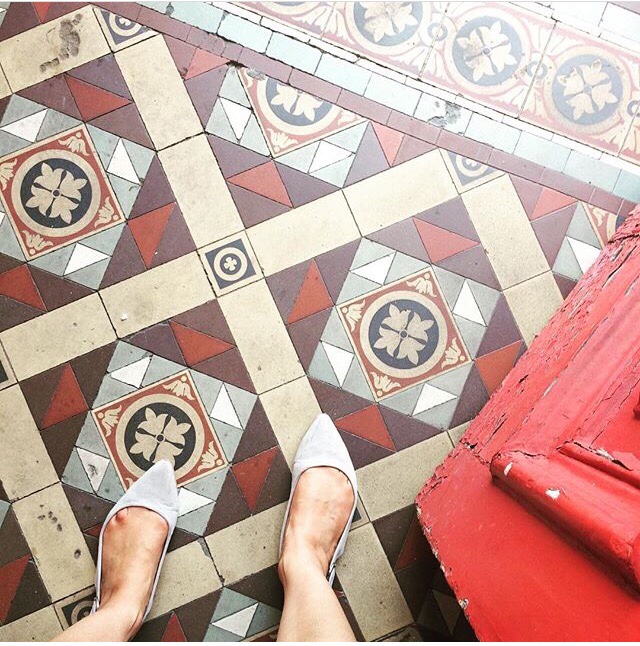
An envelope arrives on 14th August 2017, it’s the 70th anniversary of the independence of India from British rule. I hold a document that pulls me back through time and then propells me forward in a heady pendulum swing.
In 1947, after almost three hundred years in India and unable to afford the luxury of an empire after World War 2, Britain was forced to grant my ancestors self rule. A high price for independence, the country split in two with a border drawn through the region of Punjab. A new homeland for Muslims in Pakistan, while Hindus and Sikhs were to reside in the new shape of India. Millions of people found themselves on the opposite side of the border, were uprooted and began their journeys to the other side.
This year I realised the brutality of Partition. A rushed and clumsy exit by the British created an atmosphere of fear and uncertainty. Communities that had lived together harmoniously, erupted into horrific violence as the forced migration of 15 million people, claimed over 1 million lives. I learnt of stories from that time – of lootings, mass killings, death through exhaustion, women and girls raped, unborn babies ripped out from wombs and womens’ breasts cut severed and piled high. Muslims, Hindus and Sikhs turned on each other both perpetrators and victims of tremendous horrors. No one tribe is innocent of atrocities. This is perhaps why I didn’t know about this part of the history – my history.
Recent Partition stories I’ve come across hang this often unspoken chapter of South Asian history within a tale of forbidden love. A Muslim and Sikh or Hindu fall in love and though their struggle to be together we are led through the macro issues of the time. In Gurinder Chadha’s Viceroy’s House (2017) set in 1947, a Hindu boy’s love for a Muslim girl creates an universal point of reference for us. Local to me here in Yorkshire, UK, BBC Radio Leeds commissioned writer, Nick Ahad to produce a story about partition. Partition (2017) centred around a Muslim and Sikh couple about to be married in the present day and explores why the union is problematic for their families today. It seems a love story makes the history lesson easier to swallow.
Actually, they are MY stories and if anyone should and could tell them it’s me. Or so I think, until I realise that I’m so caught up in the twists and depths of these tales I cannot give you a clear beginning, middle and end never mind a happily ever after. My story speaks in many languages and often doesn’t speak at all. I’m the heroine and the villain. How can I tell you my story?
In England at least, one of the legacies of Partition is that some of our South Asian communities are often suspicious of each other. Indians mark themselves as different from Pakistanis. Hindus and Sikhs have prejudices against Muslims. Conversations about caste continue. We are somewhat fixated on difference. Despite all of our similarities, we see one another and often we see “an other”.
In this climate to love “the other” is a betrayal, to leave the tribe – unforgivable. And that’s my crime, to have loved another and desired the freedom to choose my own path. The price of my freedom is as bittersweet as that of the independence of 1947, a sharp severing of family, roots, memory and history.
I am disowned.
Erased from a lineage.
I am certain my absence there screams as loudly as the victims of the bloodthirsty mobs that roamed as a nation was severed. I often wonder whether the price of such a love would be as high if the history were not so bloody. Would I pay the same if I were not a woman? Would I still have to give up a part of myself for my freedom? For the freedom to love as I please?
Some freedoms we fight for and some arrive when we have expended everything in fighting against them. As legal papers initiating a divorce, land on my doormat on 14th August 2017, I wearily acknowledge the cosmos playing cruelly with my heart. The history and the love – hungry demons – both demanded too much from me. I’m still unable to untangle the threads of this tale. The yarn that stretches across decades and continents, religions and languages, between me and him and me and them and them and them. So I’m struggling with how I tell you this story.
There I stop. Unable to write anymore caught up the giant narratives that circle me. It’s months later that I understand that this is where this account can cease and I’ve shifted to sharing my story through the prism of my art. The inadequate ways I place the words together as poetry and the clumsy images I create. Every playlist and meal I feed you are a flavour of my tale. You will see that I am seeped in its every colour. I’ll use my final words here to tell you the one thing above all I want you to know about me.
In my story I will pay with almost everything I have for the precious freedom to be my own woman. Despite the cost of the prize, I hope that is your story too.